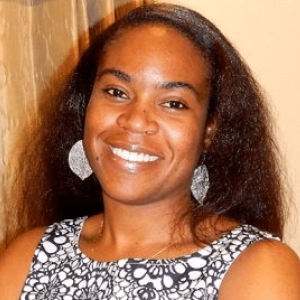Engaging Local & International Partners to Advance Effective Management for Vulnerable & Valuable Fishery Resources
Many commercially and ecologically valuable species form fish spawning aggregations (FSAs) to reproduce or breed. Unfortunately, some aggregating species such as groupers and snappers are under threat because of unsustainable fishing practices coupled with significant changes to their habitats that have been driven by coastal development, climate change and diseases. Protecting critical habitats and sustainably managing these species is key to ensuring both their long-term survival and the lucrative fisheries they support.
On March 13, 2024, Dr. Krista Sherman, Senior Scientist with the Perry Institute for Marine Science (PIMS) led a Spawning Aggregation Fisheries Workshop to discuss ongoing national and regional efforts to assist with sustainably managing species that aggregate to spawn. The purpose of the workshop was to inform and engage relevant stakeholders about the Western Central Atlantic Fishery Commission (WECAFC) project – “Improving ecosystem approach to fisheries by advancing fish spawning aggregation information gathering and increase of public engagement in the WECAFC region”.
The three pilot countries for this project are The Bahamas, Belize and Cuba. Dr. Sherman has been an active member of the regional WECAFC Spawning Aggregation Working Group since 2018 and was selected as the in-country focal point for implementation of this project in The Bahamas. Last week’s workshop was designed to both update and share information on aggregating species with a focus on Nassau grouper & mutton snapper (the two species with a regionally endorsed fishery management plan) and solicit feedback to help sustainably manage these resources.
For context, Dr. Sherman (PIMS) and Dr. Aaron Adams (Bonefish & Taron Trust [BTT]) shared information on FSAs using the critically endangered Nassau grouper and recreationally prized bonefish as case study species that have been models for local research and conservation in The Bahamas. This was followed by presentations on the status of national fishery landings for Nassau grouper and mutton snapper, stakeholder perspectives on Nassau grouper management and an overview of national and regional FSA management plans by Dr. Sherman and Dr. Lester Gittens (Department of Marine Resources [DMR]).
Participants included staff from government and non-governmental organizations with experience in either marine resource management, law enforcement, education and outreach or policy (Photo 1). They were invited to reflect on these topics, ask questions and provide feedback on the feasibility of the recommendations outlined in the regional management plan for Nassau grouper and mutton snapper (Photos 2-3).
Earnest Moss, (DMR Officer based in Crooked Island) said, “The workshop was exciting, interesting and informative and I will share this information with the local fishermen”.
“I mostly enjoyed the interactive exercises to identify gaps in knowledge about spawning aggregations and their locations along with our discussions about them” stated Patrick Collie (DMR Officer from Mayaguana). Improving public education on my island should help to increase understanding of the importance of these spawning aggregation sites. If people understand why spawning aggregations are important, they won’t fish on them, and I wouldn’t have to patrol these areas as much.”
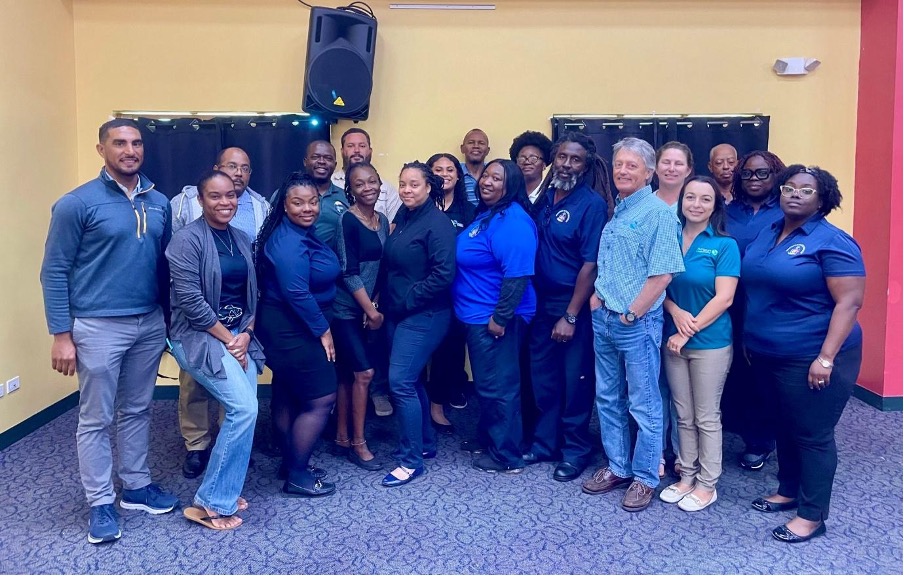
Despite the diverse backgrounds of the participants, the need to preserve spawning aggregations because of their vulnerability to overexploitation was recognized as critical given their cultural, economic and ecological value in The Bahamas and throughout the wider Caribbean region.
“Ensuring the long-term health of culturally and economically important fish species starts with identifying spawning aggregation sites and making sure these sites are protected” said Dr. Aaron Adams, Director of Science and Conservation at BTT. “And it’s important to work with both resource managers and the fishers so that their wealth of knowledge is included, and they tend to become more supportive of conservation measures.”
“This project has provided us with an opportunity to re-engage existing partners, identify new partners and work together to mutually identify a path forward to better manage spawning aggregations” said Dr. Sherman.
The WECAFC pilot projects are being funded by the European Commission’s Directorate-General for Maritime Affairs & Fisheries (EU-DG-MARE). The Spawning Aggregation Fisheries Workshop was also supported by a grant from the Sean Connery Foundation to the Perry Institute for Marine Science. Special thanks to Dr. Lester Gittens (DMR) and Dr. Aaron Adams (BTT) for presenting and helping to facilitate discussions during the workshop. Thanks to the staff at the New Providence Community Center and Chives for logistical support.
For more information about FSAs, visit our website’s Fisheries Research & Conservation Program page and follow PIMS on Facebook and Instagram at @perryinstituteformarinescience and via @nassaugrouper242 and @BigFishInitative for local and regional updates.
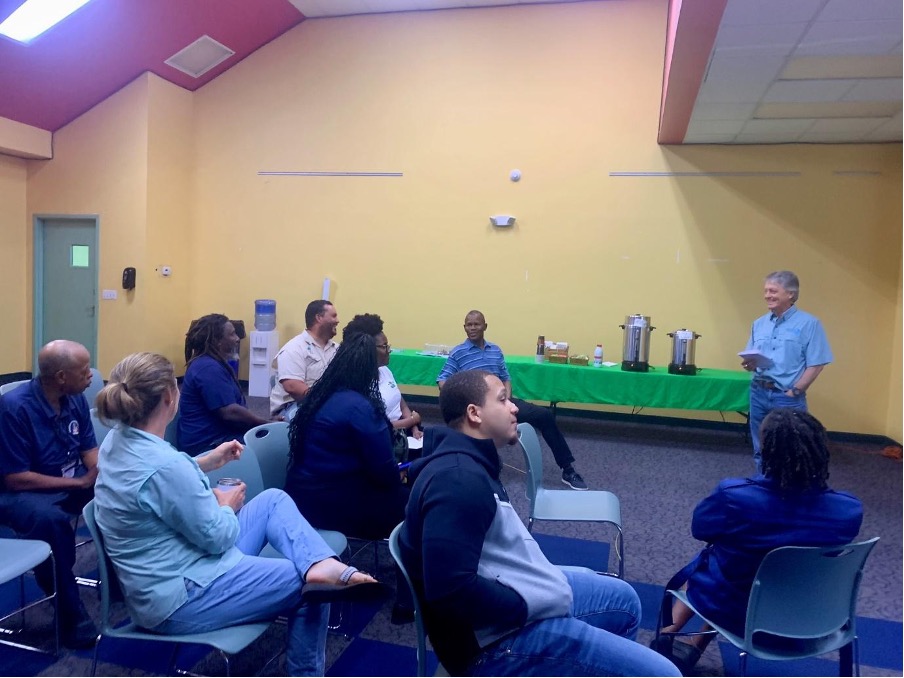
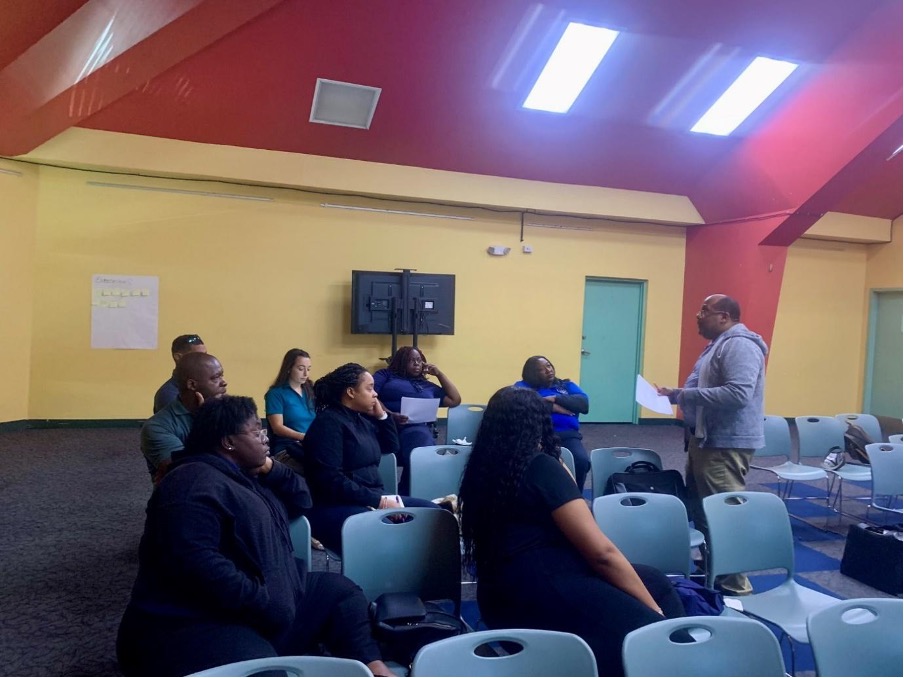
Dive deeper.
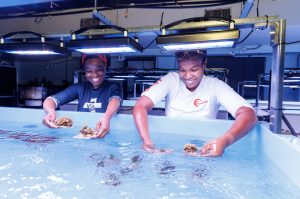
The Bahamas Just Opened a Coral Gene Bank—Here’s Why It Matters
The nation’s first coral gene bank will preserve, propagate and replant coral to reverse devastation from rising ocean temperatures and a rapidly spreading disease Video courtesy of Atlantis Paradise Island.
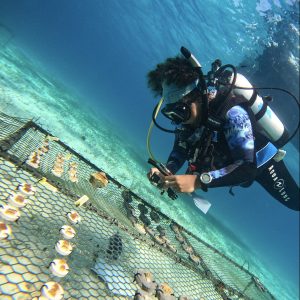
This Is What Conservation Leadership Looks Like
From Interns to Leaders: How PIMS is Powering the Next Generation of Ocean Advocates Taylor photographs coral microfragments in the ocean nursery, helping monitor their fusion into healthy, resilient colonies
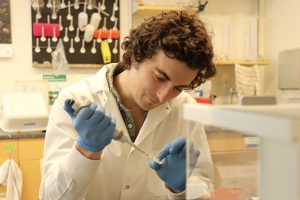
When Ocean Forests Turn Toxic
New study in Science connects chemical “turf wars” in Maine’s kelp forests to the struggles of Caribbean coral reefs — and points to what we can do next Lead author,
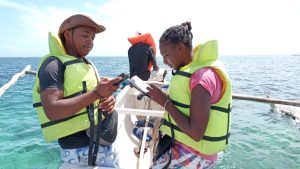
Who’s Really in Charge? Unpacking the Power Struggles Behind Madagascar’s Marine Protected Areas
Researchers head out to monitor Marine Protected Area boundaries—where science meets the sea, and local stewardship takes the lead. The Illusion of Protection From dazzling coral reefs to centuries-old traditions,
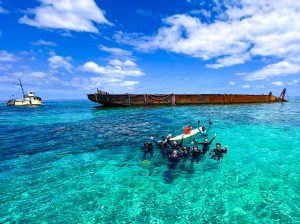
PIMS and Volunteers Step Up as Legal Battle Leaves Barge Grinding Reef in Fowl Cays National Park
Worn out but undefeated, the cleanup crew rallies around their paddleboard “workbench” in front of the stranded tug and barge—a snapshot of community grit after hours of underwater heavy‑lifting. Photo
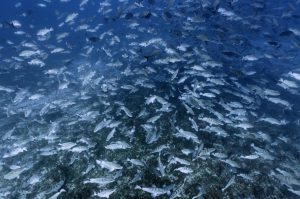
Thriving Fish Spawning Aggregation Inspires Hope for the Future
Nassau grouper FSA in Ragged Island during January 2025. | © André Musgrove Fish Spawning Aggregations & Nassau Grouper Imagine witnessing thousands of fish gathering in a synchronized spectacle, moving


